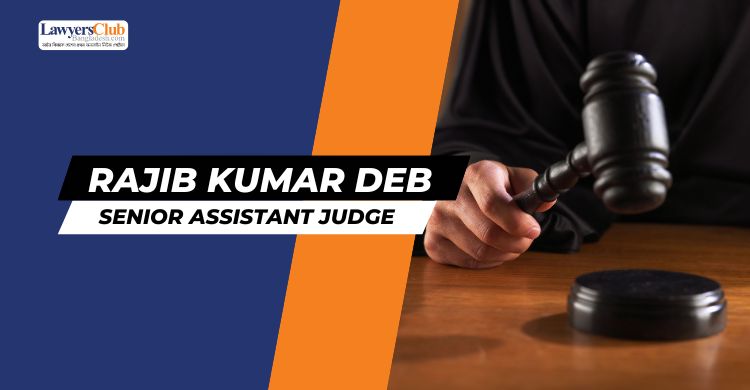Date of collecting certified copy is not date of knowledge in a cancellation suit

Rajib Kumar Deb: Whether the date of collecting certified copy may be beginning time to run limitation in a suit for cancellation of instrument? The issue I am raising pertains to the starting point for the limitation period in a suit for the cancellation of an instrument, particularly in the context of when the limitation period begins to run. This is a nuanced area of law that combines aspects of procedural requirements with substantive legal principles.
Limitation for Cancellation of Instrument
According to Article 91 of the First Schedule of the Limitation Act of 1908, the limitation period for a suit to cancel or set aside an instrument is three years. This period begins to run from the date when the fact entitling the plaintiff to have the instrument cancelled or set aside becomes known to him.
Key Points
1. Date of Knowledge: The limitation period begins when the plaintiff becomes aware of the facts that give rise to the right to seek cancellation. This means that if the plaintiff learns of the fact that justifies the cancellation—such as fraud, coercion, misrepresentation, or other grounds—then the limitation period starts from that point, not necessarily from the date the plaintiff collects a certified copy of the instrument.
2. Certified Copy of the Instrument: Collecting a certified copy of the instrument is simply obtaining a copy of the document, not the actual realization of the grounds for cancellation. The certified copy might help in proving the case, but it does not necessarily mark the beginning of the limitation period if the grounds for seeking cancellation were not apparent at that time.
3. Nature of the “Fact”: Under Section 3 of the Evidence Act, a fact includes anything that can be perceived by the senses or a mental condition of which a person is conscious. For the purpose of limitation, the relevant fact is the knowledge of circumstances that would entitle the plaintiff to seek cancellation. This often includes knowledge of fraud, coercion, or any other illegality affecting the instrument, rather than just the existence of the document itself.
Judicial Precedents
Courts have consistently held that the limitation period starts from the date when the plaintiff becomes aware of the facts leading to the right to seek cancellation, not necessarily from when the plaintiff acquires a copy of the document. If the ground for cancellation—such as fraud or misrepresentation—was not known until later, the limitation period would run from the date when this knowledge was acquired.
Practical Implications
In practice, if the trial court overlooks the issue of limitation and the case is decided on the merits, the question of limitation might be critical on appeal. If it is found that the plaintiff’s claim was barred by limitation, the appellate court may overturn the lower court’s decision.
Conclusion
In summary, the collection of a certified copy of an instrument is not typically considered the starting point for the limitation period. Instead, the limitation period for a suit for the cancellation of an instrument generally begins when the plaintiff becomes aware of the facts that entitle him to seek such cancellation. This understanding aligns with the principle that the limitation period is tied to the actual realization of grounds for legal action rather than procedural events like obtaining a copy of the document.
Author Rajib Kumar Deb is a Senior Assistant Judge।

